- Home
- Paul Christopher
The House of Special Purpose
The House of Special Purpose Read online
The House of Special Purpose
Table of Contents
Cover
Title Page
Dedication
Epigraph
Prologue
Chapter One
Chapter Two
Chapter Three
Chapter Four
Chapter Five
Chapter Six
Chapter Seven
Chapter Eight
Chapter Nine
Chapter Ten
Chapter Eleven
Chapter Twelve
Chapter Thirteen
Chapter Fourteen
Chapter Fifteen
Chapter Sixteen
Chapter Seventeen
Chapter Eighteen
Chapter Nineteen
Chapter Twenty
Chapter Twenty-One
Chapter Twenty-Two
Chapter Twenty-Three
Chapter Twenty-Four
Chapter Twenty-Five
Chapter Twenty-Six
Chapter Twenty-Seven
Chapter Twenty-Eight
Chapter Twenty-Nine
Chapter Thirty
Chapter Thirty-One
Chapter Thirty-Two
Chapter Thirty-Three
Chapter Thirty-Four
Chapter Thirty-Five
Chapter Thirty-Six
Chapter Thirty-Seven
Epilogue
Author’s Note
Acknowledgements
Next in Series
Copyright
With Love
For Mariea, Noah, Chelsea & Gabriel
You are my heart.
On the threshold of the grave
Breathe power divine into our clay
That We, Thy children, may find strength
In meekness for our foes to pray.
Last verse of an anonymous poem found in the tsarina’s Bible at the House of Special Purpose
Revolutions are always verbose.
Leon Trotsky, History of the Russian Revolution, Vol. 2
Prologue
July 17, 1918
Yekaterinburg, Western Siberia
Alexander Mikhailovitch Levitsky slipped quietly towards the gate of the wooden palisade that almost completely hid the house from view, showing his pass to Gorshkov, one of Yurovsky’s Cheka guards. Behind Levitsky, parked close to the basement windows at the side entrance of the house, was a canvas-topped truck with its engine running. Gorshkov examined the pass:
SOVIET OF THE PEOPLE’S COMMISSARS
Petrograd
12 February 1918
No. 567
I request all Organisations, Soviets and Commissars of Railway Stations to give every assistance to the holder of this letter: Comrade Alexander Mikhailovitch Levitsky.
State Commissar,
V. I. Lenin
Commissar, All-Russian Extraordinary Commission to Combat Counter-revolution and Sabotage,
Feliks Dzerzhinskiy
The signatures were overstamped with the seal of the Yekaterinburg oblast. The document was capable of taking the slim, fair-haired young man anywhere he wanted to go but Gorshkov was as methodical as he was stupid and took an inordinate length of time examining the one-page letter. After a few moments it occurred to Levitsky that the reason Gorshkov was taking so long was because he couldn’t read.
‘As you can see, it’s signed by Comrade Lenin as well as your own commander of the All-Russian Extraordinary Commission to Combat Counter-revolution and Sabotage.’ Levitsky seriously doubted that the guard had ever heard the organisation he worked for described by its full official title.
‘Yes, I can see that.’ Gorshkov scowled. ‘But it doesn’t explain what you’re doing out on the street at this hour of the morning or the reason for it.’ The sound of the running truck engine aside, Gorshkov was almost certainly aware of what had just transpired inside the euphemistically named House of Special Purpose. Levitsky had no doubt the rifle fire and the screaming from the room in the half basement could be heard halfway across town. The large residence on the northern edge of town had originally been owned by the Jew engineer Nicolai Ipatiev and had previously been known by his name but, as the whole city knew by now, for the last two months it had been used to accommodate and imprison the tsar, Nicholas II, and his immediate family.
The guard was still staring balefully at Levitsky, waiting for an answer to his question. Levitsky leaned into the flat Mongol face. ‘I am returning to Moscow on urgent business. I have a meeting with Comrade Dzerzhinskiy in Lubyanka Square in two days’ time. I don’t think Iron Feliks would appreciate you detaining me.’
‘You are taking the Rossiya?’ Gorshkov asked, using the proper name for what most people outside of Russia called the Trans-Siberian Express.
‘Of course I am taking the Rossiya, comrade. How else does one get out of this godforsaken place?’
‘Comrade Lenin tells us that God is dead.’
‘Comrade Lenin may very well be correct, and if God is dead, He is almost certainly buried in one of the fly-swamps around this place or drowned with chains around His ankles in the river Iten.’ Levitsky reached out and snatched the priceless pass out of Gorshkov’s hand. ‘Now if you’ll let me go on my way.’
Gorshkov made a final attempt at exerting authority. ‘The westbound Rossiya does not arrive at the station until almost noon.’
‘This place has proved to be a little too unhealthy for my tastes, comrade. I prefer to wait at the Yekaterinburg Station rather than here, if you don’t mind.’ Not to mention that he had no intention of taking the westbound express, or of meeting with Iron Feliks, for that matter. Levitsky pocketed the pass, gave Gorshkov a curt little nod and turned on his heel, heading north towards the station, his boots clumping loudly on the wooden pavement.
Including Yurovsky, there had been fourteen men in the basement behind him, most of them members of the First Kamishl Rifle Regiment. When Yurovsky was finished with disposing of the bodies, he would turn his attention to the smaller but equally vital details of the plot, which included removing any witnesses to the atrocity with a single shot to the back of the head using the .32 calibre Mauser he carried with him everywhere. Everyone, right down to Leonid the kitchen boy, would be silenced and given their own spot in the swamps to wait out eternity. Even a lummox like Gorshkov would be a liability.
Levitsky was not Bolshevik, Menshevik, Royalist or White. He was an artist and like all artists he bore no allegiance to any political organisation. His only allegiance was to his own survival and the only way to keep on breathing was to beat a hasty retreat from the hell house he had just left and to cover his tracks while doing so. That was precisely why he had informed Gorshkov that he was going to wait for the Rossiya at the railway station.
To allay any suspicions the Chekist might have, he would head in that direction but at the earliest opportunity he intended to follow a series of side streets, eventually coming out at the railway track well to the east of the station. From there he would follow the track to the old Jewish cemetery by the freight yards close to Lake Shartash on the eastern edge of town. At the first sign of a freight heading in the direction of Omsk he would jump a boxcar and simply disappear. He was well aware of the telegraph poles that ran along the same route as the Rossiya and he had no desire to be trapped by those whispering wires. With a nation starving to death, divided and still at war with Germany as well as itself, freight trains had priority over the Rossiya and everything else on the tracks, with the exception of those terrifying armoured trains he had seen on sidings when he had come up from Moscow. If his luck held and he wasn’t captured by the Czechs, the Reds, the Whites or Comrade Lenin himself, Levitsky coul
d be in Vladivostok within a week.
Walking north, he heard the loud sound of a truck backfiring and felt his heart leap in his chest. Instinctively he reached under his jacket and touched the precious object he’d slipped under his shirt. Still there. The truck backfired a second time, accompanied by the crash of gears grinding. Lyukhanov wasn’t much of a driver. He resisted the urge to turn around and look. He kept on walking, forcing himself not to panic, and eventually he heard the sound of the truck engine receding. For the moment, at least, he was safe. He turned down a side street between a tobacco shop and a fishmonger with an iced-down display of pike and grayling in the window, perfect for making ukha. He had a vivid memory of the smell of his grandmother’s recipe for fish soup and he sighed. Desperately trying to ignore the hungry rumbling in his stomach, he increased his stride, and with that, Alexander Mikhailovitch Levitsky marched into history.
The military evacuation of Yekaterinburg began two days later on July 20. On July 21 there were a few minor clashes between the advancing White Army and a few Red Army units retreating towards Perm. On the night of July 24 to 25 troops from the Siberian White Army under the command of Colonel Voitsekhovsky occupied Yekaterinburg, meeting no resistance whatsoever. The House of Special Purpose, once known as the Ipatiev House, was empty and bore traces of havoc and hasty flight. On July 25, the head of the Yekaterinburg garrison, Major General Golitsyn, assigned a military guard to the house in an attempt to stop the looting that had begun there.
On July 29, twelve days after the execution of the entire family of Tsar Nicholas II, Alexander Levitsky arrived in Vladivostok after a relatively uneventful, although hungry, journey. From there he joined a group of refugees and boarded the SS Ida, a tramp steamer bound for San Francisco by way of the South China Sea, the Philippines and the Hawaiian Islands.
Chapter One
Tuesday, November 18, 1941
New York City
Jane Todd walked stiffly down the steps of the Genero-Taglia Funeral Home, the darkly varnished copper urn containing the small bones and ashes of her sister’s remains held firmly in both hands. Above her a hard rain battered the faded maroon awning that sheltered the worn granite steps leading down to the sidewalk in front of 49 Second Avenue. The sky over Manhattan’s Lower East Side was the colour of hammered pewter and a block and a half away the First Avenue El provided regular peals of racketing thunder. It was a good day for a funeral if such a thing was possible.
Behind Jane came the few guests she’d invited to the brief service. Her scrawny friend Rusty Birdwell from the Daily News, who’d called her in Los Angeles with the news of Annie’s death at the Blackwell’s Island Asylum. Detective Sergeant Daniel Patrick Hennessy, with whom she’d had her share of adventures over the years, and Noel Busch, her high-class friend from the New Yorker and Life who’d insisted on making all the funeral arrangements.
‘I still don’t know why you chose this place,’ Hennessy muttered. ‘Everyone says it’s a stiff locker for the Mob, a place to park bodies until they can get them across the river to the swamps in Jersey.’
‘It may be owned by the Mob but they do a good job and it’s convenient.’
‘Convenient?’
‘Come on.’
As Jane reached the sidewalk and stepped out from under the awning, Noel snapped open his umbrella and had it above her head before a single drop of rain could strike. She was tired and grieving and her blonde hair was lank against her neck but she still looked ten years younger than her age of forty-one. More than one of her friends had commented that there was something about her that would always keep her looking young.
‘You got class, Buschy, I’ll give you that,’ Birdwell said in admiration.
Busch’s big black Lincoln Zephyr, Birdwell’s brand-new Hydra-Matic Olds in bright yellow and Hennessy’s dark green unmarked and slightly battered-looking ’35 Hudson Terraplane coupe were parked right in front of the funeral home, but instead of guiding Jane to one of the cars, Noel took her by one elbow and turned her to the right.
They all ducked into a narrow alley between the funeral home and a tenement next door. Directly in front of them was an ornate wrought-iron gate fitted with a very heavy looking old-fashioned lock. In scrolled metal letters above the gates it said:
NEW YORK MARBLE CEMETERY
‘You’re kidding me,’ said Birdwell. ‘There’s a cemetery here?’
‘Since the 1800s,’ Busch answered. He took a huge key out of the pocket of his suit jacket and inserted it into the equally large lock. The key turned and he pushed on one of the gates. It opened smoothly without so much as a squeak. In front of them, protected from the rain by an arched stonework roof, was a long alleyway leading down to another set of gates.
‘Just a little spooky,’ said Hennessy as they went through into the alley.
‘Last resting place for a lot of famous families,’ offered Noel as they headed down the alley. ‘Scribners, Varicks, Beekmans, Van Zandts. Even a sprinkling of Busches.’
‘Are you sure this is okay, Noel?’ Jane spoke quietly and there was still a slight, haunted crack in her voice.
‘I asked my mother,’ he answered, patting her on the shoulder. ‘She thought it was a fine idea.’ He patted his jacket pocket. ‘She was the one who gave me the key.’
‘How do we get down into the vaults?’
‘Don’t worry about that either. Mother’s arranged everything.’
They reached the end of the alleyway and Noel took out the key again, opening up the second pair of gates. They stepped through into a park-like area a hundred feet wide and two hundred long. Grass had been planted and was neatly tended, as were the scattering of small trees. There were no visible headstones anywhere but there were marble plaques on the stone walls that surrounded the cemetery. The plaques were set into metal slots so they could be either removed or added to. Each row of marble plaques had a metal number welded to its holder. In front of row 103 a workman had a pulley tripod over a hole in the ground. The top plaque in the holder read EZEKIAL BUSCH 1882. The workman, dressed in overalls and a broad-brimmed hat, had sliced off a square of turf, dug down a few inches and then reached a granite capstone. Threading a rope through the attached U-bolt, he had hauled up a heavy slate trapdoor, revealing an iron ladder fixed to one wall of a dark shaft. The workman stood upright as the little group of people appeared and even in the pouring rain he removed his hat.
‘Now what?’ Jane asked.
‘Each of the vaults has a dozen or so slate shelves fitted into the marble sides.’
‘Are all the shelves being used?’
‘There’s one or two empty ones. Marco here will put the urn anywhere you’d like.’
‘Not on an empty shelf,’ said Jane. ‘I don’t think Annie would like that. She was used to being around a lot of people, even though I’m not sure she knew exactly where she was.’
‘I find you a nice place, lady. Don’t worry,’ said Marco. He held out his hands. ‘She’ll be safe. Don’t worry,’ he repeated.
Reluctantly Jane handed over the copper urn. As Marco took the heavy object from her she was surprised to see a certain reverence in his expression. He ducked under the tripod scaffolding, expertly lowered himself onto the ladder one-handed and disappeared into the darkness.
‘I should have been here for her,’ said Jane.
‘You had to live your life, kid,’ said Birdie. ‘And Annie didn’t know one way or the other.’ Which was true enough. Her sister had never recognised her or even acknowledged her presence in all the times she’d visited when she’d lived in New York. But the guilt was still there, deep and abiding, hard in her heart, even if it was only the guilt that she’d been born the normal one and not like Annie. Or maybe the guilt came from the relief of knowing she’d never have to visit that terrible place again.
Marco came up the ladder and climbed out into the rain. He gave Jane a soft, gentle smile. ‘I find her a good spot, lady. She’ll rest happy here.’ He looked
up at the dull sky and shrugged. ‘On a nice day, this place is very beautiful. Marco makes sure of that. I do grass and flowers and trees too.’
‘Thank you, Marco.’ Jane glanced at her friend, wondering if she should tip the man, but Noel gave her a barely noticeable shake of his head. She watched for a moment as Marco went about his business, lowering the slate capstone back over the dark burial shaft, then let Noel lead her away, back to the gates and to the street.
‘Oak Room at the Plaza in an hour?’ Birdwell said as they reached the cars. ‘Pelay’s laying on a bit of a spread. Drinks on the house.’
‘Make it an hour and a half,’ said Busch. ‘Jane and I have an appointment.’
‘We do?’ said Jane.
Busch nodded. ‘Somebody wants to meet you.’ He pulled open the passenger-side door of the Lincoln and handed her inside. He went around to the driver’s side, furled the umbrella and slid behind the wheel.
‘Where are we going?’
‘Palm Court at the Roosevelt.’ Busch switched on the engine, put the big car into drive and pulled away from the curb, heading uptown.
As the Lincoln sped away Jane wondered what her old friend was up to; she glanced at him across the seat. He had a grim, serious look on his handsome, aristocratic face and it wasn’t just from the funeral. Something was going on and she didn’t have the slightest idea what.
* * *
Captain Guy Maynard Liddell, MC, late of His Majesty’s Royal Artillery and presently a high-ranking officer in Great Britain’s MI5, stood leaning on the parapet of the narrow stone bridge that spanned the Beaulieu River, smoking his pipe, admiring the setting of the sun and waiting for his friend to appear. To his right was Beaulieu High Street with its few shops and the sturdy brick bulk of the Montagu Arms. To Liddell’s left, hidden in the trees on the far side of the bridge, were the ruins of Beaulieu Abbey and beyond that the country house belonging to the estate, now used as one of the training schools operated by the Special Operations Executive, or SOE, and the present home of Morris Black, the ex-Scotland Yard detective inspector he had come to see on urgent business.

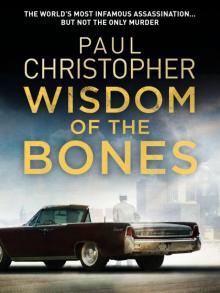 Wisdom of the Bones
Wisdom of the Bones The House of Special Purpose
The House of Special Purpose The Second Assassin
The Second Assassin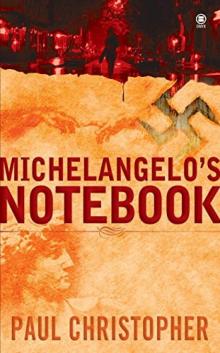 Michelangelo's Notebook
Michelangelo's Notebook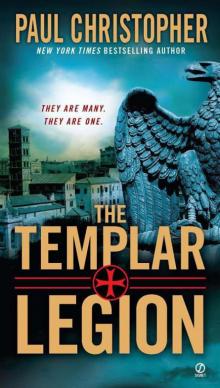 Templar Legion
Templar Legion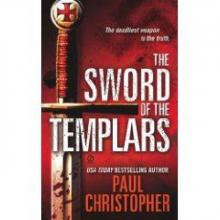 The Sword of the Templars t-1
The Sword of the Templars t-1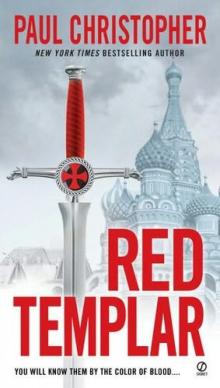 Red Templar
Red Templar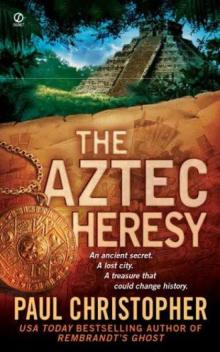 The Aztec Heresy
The Aztec Heresy The Templar Legion
The Templar Legion Rembrandt's Ghost
Rembrandt's Ghost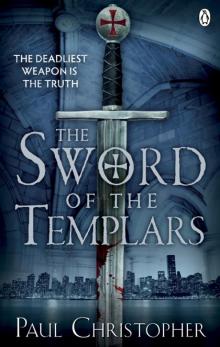 Sword of the Templars
Sword of the Templars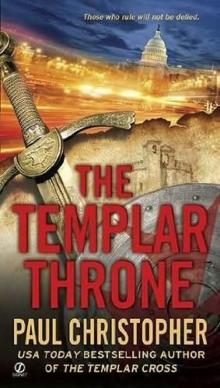 The Templar throne t-3
The Templar throne t-3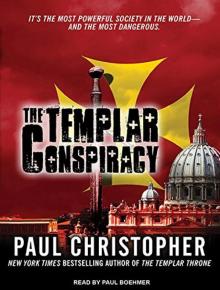 The Templar Conspiracy
The Templar Conspiracy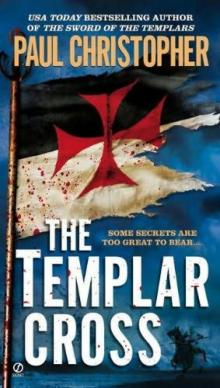 The Templar Cross t-2
The Templar Cross t-2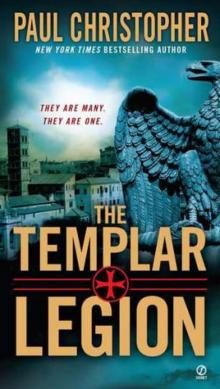 The Templar Legion t-5
The Templar Legion t-5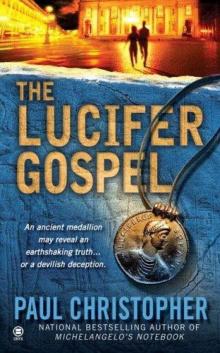 The Lucifer Gospel
The Lucifer Gospel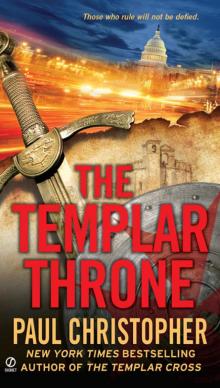 Templar Throne
Templar Throne Michelangelo_s Notebook fr-1
Michelangelo_s Notebook fr-1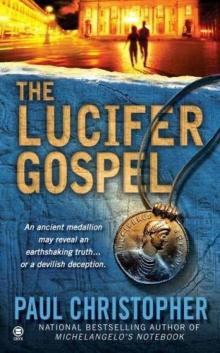 The Lucifer Gospel fr-2
The Lucifer Gospel fr-2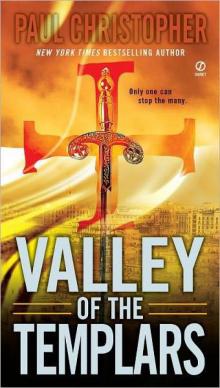 Valley of the Templars ts-7
Valley of the Templars ts-7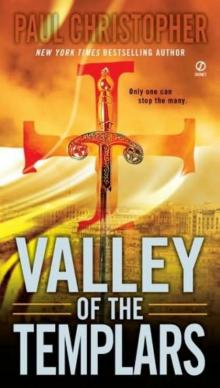 Valley of the Templars
Valley of the Templars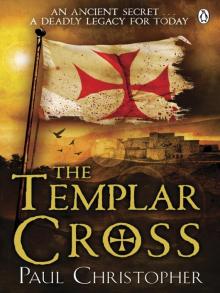 Templar Cross
Templar Cross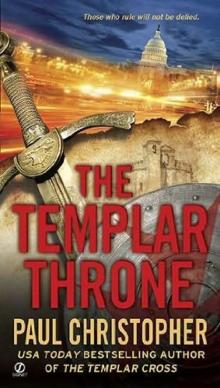 The Templar Throne
The Templar Throne The Templar Cross
The Templar Cross Lost City of the Templars
Lost City of the Templars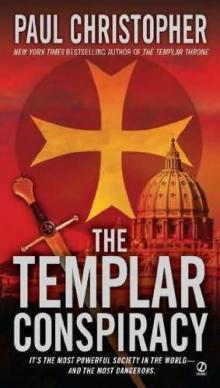 The Templar conspiracy t-4
The Templar conspiracy t-4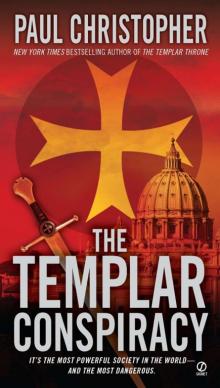 Templar Conspiracy
Templar Conspiracy